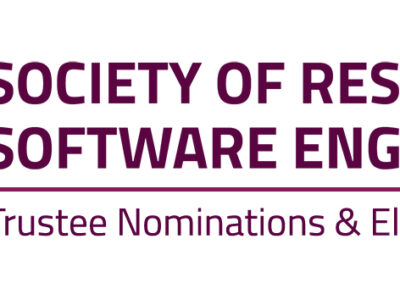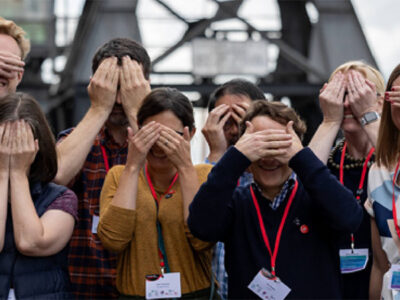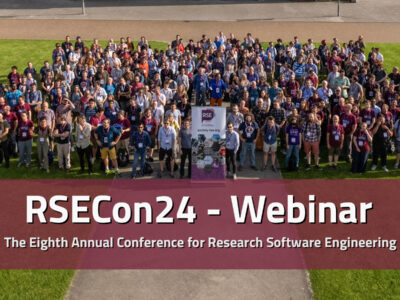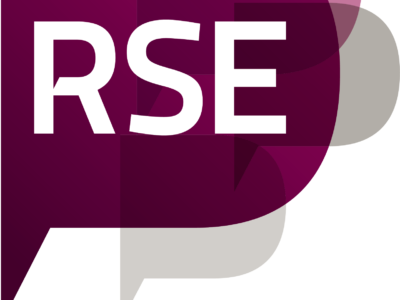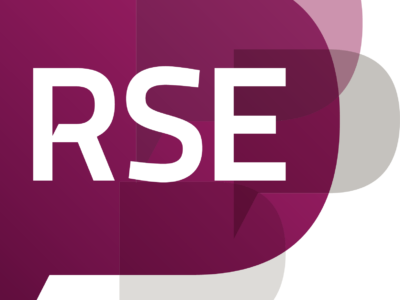RSLondonSouthEast 2022
Jeremy Cohen, on behalf of the RSLondonSouthEast 2022 Organising Committee
Little did we know, on 6th February 2020, when we left The Royal Society after the enjoyable and thought-provoking talks and discussions of the one-day RSLondonSouthEast 2020 workshop, of the challenges that were soon to be upon us as a result of the pandemic.
In some ways, the world now feels like a rather different place but on Monday 4th July 2022, the RSLondon community was finally able to gather again, in person, for RSLondonSouthEast 2022. Hosted, this time, at Imperial College London, the one-day workshop followed a now familiar theme with talks, posters, discussion and time for networking.
In the run up to the workshop, the 14 members of our programme committee reviewed abstract submissions and ensured that all submissions received 3 reviews. The organising committee worked on setting up and maintaining the web content, designing banners and signage, advertising to the RSLondon community and putting in a significant amount of work to liaise with event and catering teams at the venue to plan the layout and use of the space. Despite the removal of any official restrictions, we were also very aware that, in light of recent challenges, not everyone is feeling entirely comfortable with large in-person events. We therefore worked to ensure that we could provide an experience that felt as much like pre-pandemic in-person workshops as possible, while also helping people who were feeling less comfortable with such events to feel able to attend if they wanted to. We used a space that offered significantly more seating than our planned maximum number of attendees to ensure there was additional room to spread out and distance from others if attendees wished to do so. We also provided masks for anyone wishing to wear one who hadn’t brought their own, and we ensured that hand gel was available for attendees. The breakout space used for catering and poster presentations was a large area that also allowed attendees to spread out and have their own space. Equally, it was great to again see so many groups of RSEs and researchers chatting about their work, making new connections and sharing technical knowledge, advice and experiences.
Perhaps as a result of the recent challenges and slow return of confidence about attending in-person events, we observed a rather slower rate of registrations for this event. However, we were somewhat surprised but also happy to see a significantly higher rate of attendance on the day, with far fewer “no shows” than we had experienced at pre-pandemic events, and a total of almost 80 people in attendance.
The workshop kicked off with a brief introduction from the chair followed by a keynote talk by Dr Anne Cori of the MRC Centre for Global Infectious Disease Analysis at Imperial College London. Dr Cori’s talk on real-time modelling to support outbreak response provided a fascinating example of the challenges of real-time analysis of viral outbreaks and epidemic response. The talk was especially relevant given Dr Cori’s work modelling SARS-CoV-2 but it also offered a more general example of the huge importance of software, and the work that research software engineers do, in supporting research.
The rest of the morning schedule included a talk from one of our sponsors, UKRI-EPSRC, a set of technical talks and then a group of 2-minute lightning talks from our poster presenters. The technical talks were either full 15-minute talks or short 5-minute lightning talks. Each technical talk session included a mix of full length and lightning talks. A slightly extended lunch break allowed time for viewing the posters and talking with poster presenters, and an opportunity for networking and meeting people from many different institutions to chat in-person. For many attendees, this provided the first opportunity to meet collaborators and friends from the RSE community, in-person, in well over 2 years.
The afternoon session began with a talk from our second workshop sponsor, The Society of Research Software Engineering and included a number of further talks and an “unconference”-style discussion session where the attendees broke up into three groups to discuss different topics that were selected by an informal vote at the beginning of the session.
Talk topics covered a wide range of different areas, from looking at the development of RSE groups and training provision through to more low-level technical topics covering areas such as code optimisation and data analysis techniques.
The event concluded with a drinks reception and further time for technical discussion about the topics covered during the day and a chance to catch up with community colleagues and collaborators.
It was clear that this was an event that was very much enjoyed by the attendees with our post-event survey receiving overwhelmingly positive feedback. Alongside this, attendees also offered some helpful comments that we will take into account when organising future events. Respondents to the post-workshop survey highlighted the networking opportunities, followed by the talks, as the aspects of the event they enjoyed most. While many respondents felt the balance of activities at the event was about right, some felt that there could have been more time for discussion and networking, something that will be taken into account when planning future events.
We would like to thank our sponsors, UKRI-EPSRC and The Society of Research Software Engineering, who supported the event via their Events and Initiatives Grant scheme. The event could not have been held without their support and we are very grateful to them for enabling us to provide this opportunity for members of the RSLondon community to come together and share knowledge, skills and ideas.
Look out for RSLondonSouthEast 2023 which we plan to run in Spring 2023.
Photo: Maria Broadbridge
Photo: Maria Broadbridge

